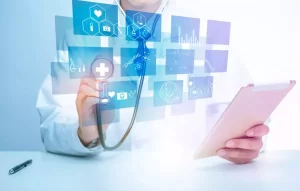Blood Pressure Medicine

There are many types of blood pressure medicine, and your healthcare provider can help you determine which one is right for you. Depending on your individual needs, you may be prescribed one or a combination of several drugs. For instance, you may need a beta-blocker to control blood pressure after a heart attack, which will reduce your overall risk of death. You might also need an ACE inhibitor or an ARB to protect your kidneys from damage caused by diabetes.
A common mistake is taking your medicine at different times throughout the day. It is generally recommended to take your blood pressure medicine in the morning, as this is when your blood pressure is the highest. Taking your medication before bedtime, on the other hand, will reduce the risk of a heart attack or stroke. If you take it in the evening, you may not remember that you missed your dose until 7 to 8 hours later. Your doctor will likely recommend that you take your blood pressure medication before bed.
In addition to taking your medicine at regular intervals, your healthcare provider may also suggest changes to your diet. You may want to limit sodium-rich foods. If you’re concerned about how much sodium you should be eating, talk to your doctor before starting any new recipes. It’s important to be aware that many people with high blood pressure don’t notice any symptoms at first, so your doctor may recommend a combination of medications. Taking your medication as prescribed is essential to your overall health, and it can help prevent cardiovascular diseases.
There are two types of blood pressure medicine. Systolic pressure is measured when the heart beats, while diastolic pressure is when it rests. In general, you should be below 120/80 mmHg. You may also want to consider a monitoring device that helps you record your blood pressure throughout the day. This will ensure that your blood pressure is at a normal level. If you’ve been taking medication for high blood pressure, your doctor will most likely prescribe a blood pressure medicine to control your symptoms.
High blood pressure medicine is not a cure for high blood pressure. Although it may not help with the condition, it can help to maintain a normal level and reduce your risk of heart disease. Some blood pressure medicines can cause side effects, such as dry mouth and cough. To avoid these, it’s better to make a list of your questions and the answers you can think of when talking to your doctor. And remember to talk to your family about your medical needs.
While lifestyle changes and blood pressure medicine are the best way to lower your blood pressure, a doctor may also recommend that you begin a program of physical activity. It’s important to exercise regularly and to limit your intake of sodium and alcohol. Smoking and alcohol use are also a risk factor for heart attacks. For some people, however, medication is necessary. However, if you’d prefer to remain on medication, your doctor may prescribe one or more types of medicines. The type of medicine recommended will depend on your blood pressure reading and how much of a risk you are of developing problems.







